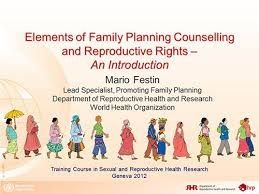



India's population has increased by nearly five times from about 238
million at the
beginning of this century to one billion now. The current annual
increase of about
15.5 million people in the country-the largest in the world-puts great
pressure on
resources and the environment.
Some Facts:
· Although fertility has fallen from about six children per woman in
1951 to about
2.7 children in 1997, the population continues to grow by 15.5 million annually.
· If couples average two children each by 2001-2006, India's
population will stabilise
at about 1.7 billion. But, if it is delayed by 20 years, it will rise
above 2 billion.
· Achieving the national health (for all) and demographic goals is a
formidable task
because 36% of the population is under 15 years of age, and represents a large
youth population- the parents of tomorrow.
· Barriers to family planning include low literacy (male: 64%; female:
36%), the low
status of women, high infant mortality (ranging from 15 to 112 per
1000 live births),
and socio-cultural factors such as son preference and early marriage of girls
Following are reasons for family planning-
1. The present day over-population.
2. Over-population affects the economy of the country reducing the rate of human
comforts and happiness.
3. All the modern comforts and happiness.
4. The argument against family planning as to the instance of man-power a our
disposal.
5. Science has so advanced that birth could be controlled effectively.
6. It is only by good family playing that an under-developed country can march
ahead.



